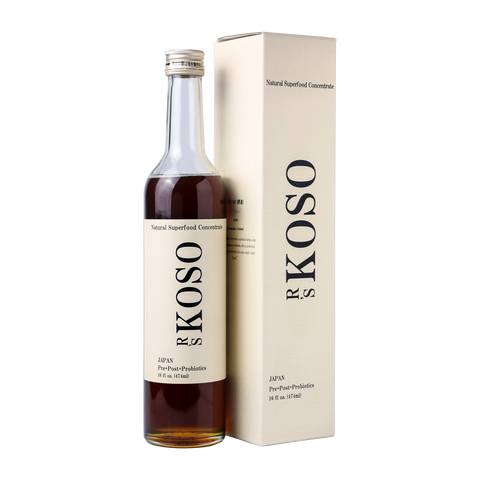Why do the Japanese enjoy such long, healthy lives? While their secret isn’t found in extreme diets or expensive supplements, it lies in the small, consistent habits woven into their everyday lives.
Samurai Matcha introduces a 2021 study from Duke University that compared Japanese people living in Japan with those living abroad. The findings? Those in Japan tend to live longer.
What’s the secret? According to Samurai Matcha, it all comes down to daily habits—how they eat, live, and take care of themselves.
Samurai Matcha shared 20 traditional Japanese wellness habits that support both physical and mental well-being in his YouTube video. Many of them are easy to incorporate into your own routine today.
Here are some of the habits he shared.
1. Start the Day with Hands Together
In Japan, many begin the day by placing their hands together in a gesture of gratitude. This simple act isn’t just spiritual, but also it’s symbolic. The right hand represents yang (giving), and the left, yin (receiving). Bringing them together creates balance. A quiet moment to acknowledge life, health, and the day ahead.
A mindful beginning like this can set the tone for a more centered, intentional day.
2. Dry Towel Rubbing
Dry towel rubbing is known as "kanpu masatsu". This traditional practice involves rubbing the skin with a dry towel to stimulate circulation and awaken the immune system. It’s an invigorating way to start your day, especially in colder months, and is said to help with poor circulation and fatigue.
3. The Power of YOKU
In Japan, the word “-yoku” (浴) means “bathing,” and it shows up in many forms of natural healing:
Kaisui-yoku (sea bathing), Shinrin-yoku (forest bathing), Nikko-yoku (sun bathing), Gekko-yoku (moon bathing), and of course, Nyuuyoku (a regular bath).
The idea is simple—by quietly receiving the energy of nature, we restore our balance and well-being. But these days, many of us are unknowingly doing “screen-yoku”—bathing in screens—which does the opposite.
That’s why it’s important to return to nature every once in a while—to bathe in sunlight, fresh air, or even silence. This quiet Japanese habit helps us reset from the inside out.
4. Barefoot at Home
In Japanese homes, shoes come off at the entrance. Walking barefoot (or in socks) indoors isn’t just cultural. It helps strengthen foot muscles, improve posture, and keep the living space cleaner and energetically lighter.
5. 5-Minute Morning Cleaning
Rather than letting clutter build up, many Japanese do a quick tidy or clean in the morning. It’s not just about physical cleanliness. It is about creating a clear, peaceful environment that supports mental clarity too.
6. Miso Soup
A staple of Japanese breakfasts, miso soup is rich in fermented goodness, containing probiotics that support gut health and digestion. When paired with seasonal vegetables and seaweed, it becomes a nourishing, grounding start to the day.
7. Enzyme Drink – KOSO
One of Japan’s most time-honored wellness traditions is the use of koso, or enzyme drinks. These are made by fermenting fruits, vegetables, and herbs to enhance nutritional value.
A popular modern version is R’s KOSO, a plant-based, non-GMO postbiotic drink. It’s crafted through a slow fermentation process using over 100 types of raw ingredients. supporting:
-
Improved digestion and gut health
-
Support natural detoxification process in the body
-
Balance mood
-
Increase energy level
-
Improve skin health
R’s KOSO is especially helpful if your diet is lacking in raw, fermented foods. Or if you're feeling sluggish, bloated, or out of balance. Just a small shot a day can make a noticeable difference over time.
8. Rice Over Bread
Unlike many Western countries where bread dominates, the Japanese traditionally center meals around steamed rice, a whole, gluten-free grain that provides stable energy and pairs well with fermented foods. It's also more easily digested for many, making it a gentler choice for the gut.
9. Chew 100 Times
While it might sound excessive, chewing each bite thoroughly - even up to 100 times - slows down the pace of eating, promotes better digestion, and enhances feelings of fullness. It's a mindful eating practice that helps you connect with your food and your body's signals.
10. The Power of Empty Time
In traditional Japanese art, there’s a concept called “ma”—the intentional use of empty space. Instead of filling every inch of the canvas, artists leave certain areas blank. This space isn’t meaningless; it brings balance and calm to the viewer’s heart.
Life can be the same. When every moment is packed with meetings, messages, and tasks, it’s like a painting with no room to breathe. That’s why creating “empty time” in your day—just 30 minutes of stillness or silence—can be deeply healing.
It’s a simple practice to help your mind reset and reconnect. Even a short pause, done intentionally, can restore your inner calm.
Japanese wellness doesn’t rely on extremes. It's about consistency, balance, and nature. Adding just a few of these habits to your day can bring more calm, clarity, and vitality into your life.
And if you're looking to start with just one habit, try R’s KOSO, a Japanese postbiotic drink that supports gut health, energy, and gentle detox from the inside out.
Check out Samurai Matcha's video to learn all 20 simple Japanese habits for a healthier, longer life.
Let’s get started!

